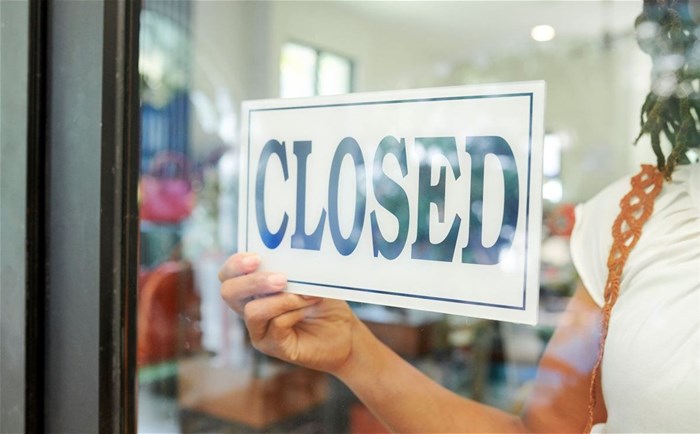Losses continue to mount for SA's hospitality industry

The continued financial strain being placed upon the industry is further evidence of the need for an accelerated rollout of South Africa’s vaccination programme.
While expected, it is concerning to note the substantial losses continuing past 15 October 2020, when UIF TERS payments were discontinued, leaving businesses without any form of financial relief despite remaining significantly impacted by regulations.
Reduced demand for hospitality services
Income from accommodation decreased by 66,8% year-on-year in November 2020, the result of a 52,7% decrease in the number of stay unit nights sold and a 29,7% decrease in the average income per stay unit sold. The largest decline in income was reported by hotels, down 69,6%.
Equally dire findings were reported for the food and beverage sector, down 36,3% in November 2020 compared with November 2019. Despite the reintroduction of alcohol sales during this period, the largest decrease was recorded for bar sales (-54,3%), while restaurants and coffee shops were the biggest contributor to the decline (-51,3%), followed closely by catering services (-50,3%).
Furthermore, the income figures released by Stats SA do not reflect the number of hospitality businesses that have had no choice but to close doors.
"The real figure is even more alarming," says Rosemary Anderson, Fedhasa Chairperson. "Even though the hospitality industry is theoretically open, the constraints – which include tourist attractions such as beaches being closed, the reduction in the number of patrons allowed, reduced operating hours and the ban on the sale of liquor – make it financially unviable for many businesses to continue to operate.
"Other countries have been able to provide financial assistance for those impacted by lockdown rules, but unfortunately the same degree of assistance has not been able to be offered in South Africa."
The impact of these inevitable business closures goes far beyond the loss of income but extends to the losses to the South African economy, municipalities, suppliers, many downstream entities as well as the loss of jobs. The current ban on alcohol is also having a dramatic effect on the fiscus, with many areas of taxes no longer being collected. Just the loss in excise taxes, that would otherwise be paid to Sars, is an average of R2.5bn per month.
Stronger government, industry collaborations needed
"Fedhasa understands that government is in the unenviable position of shouldering the responsibility of balancing the health of its citizens against the health of the economy. For this reason, it is critically important that a swift rollout of a national vaccination programme is put in place to save thousands of lives and livelihoods."
Similar to the hospitality industry providing quarantine and isolation facilities when needed, Fehasa believes that the industry could have an important role to play in the rollout of the vaccination programme. "Further public and private sector consultation could shine a light on ways government and industry can collaborate to remove some of the potential roadblocks in the effort to get the population vaccinated as quickly as possible," concludes Anderson.

































